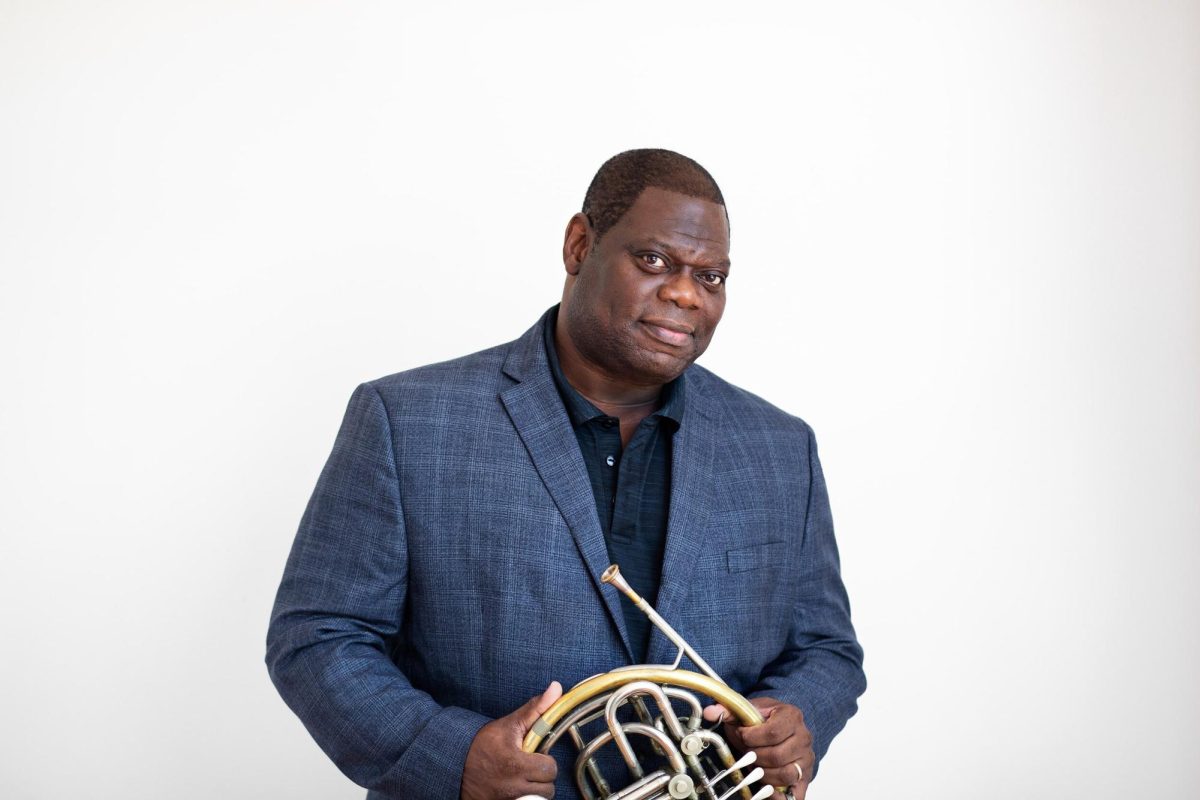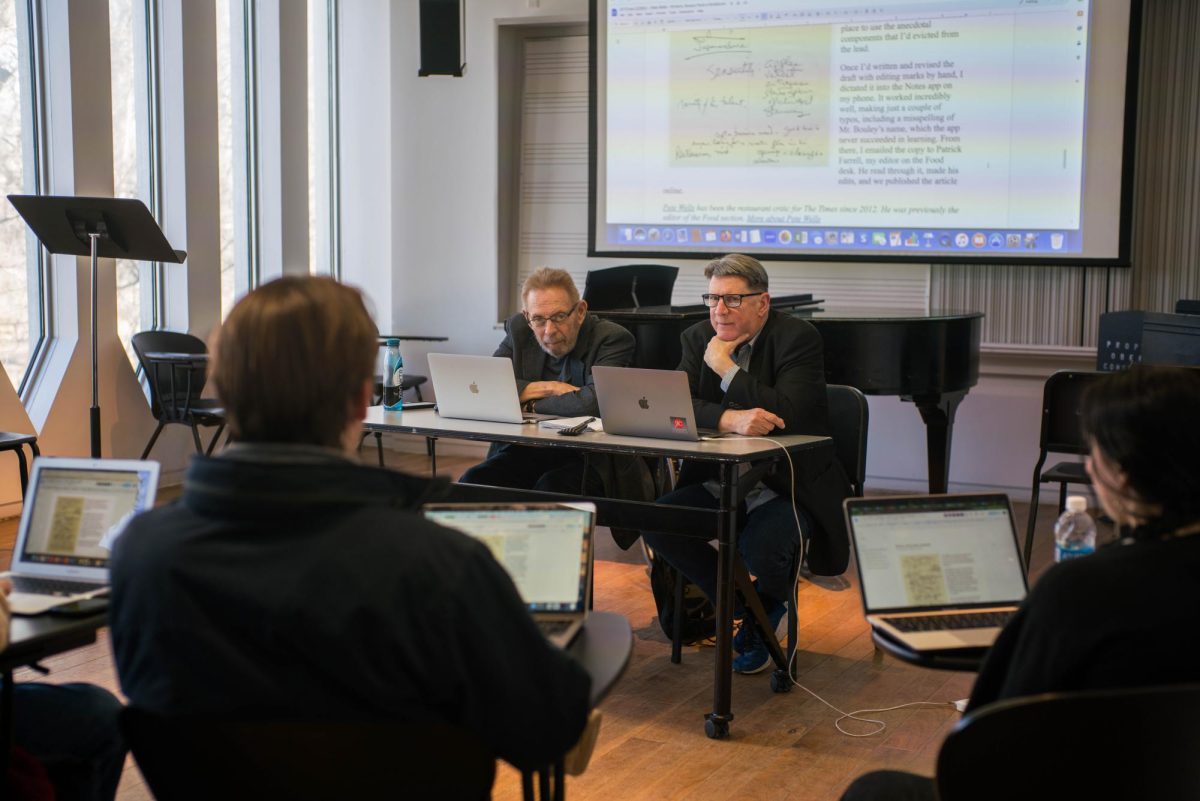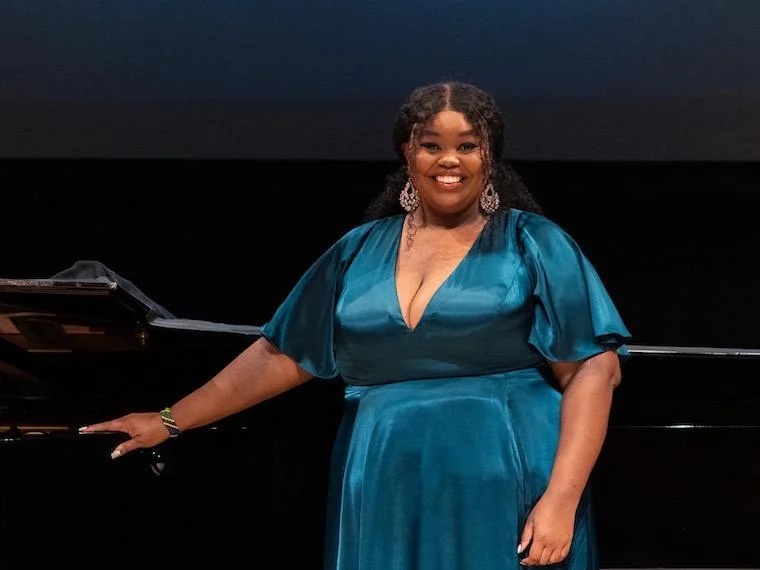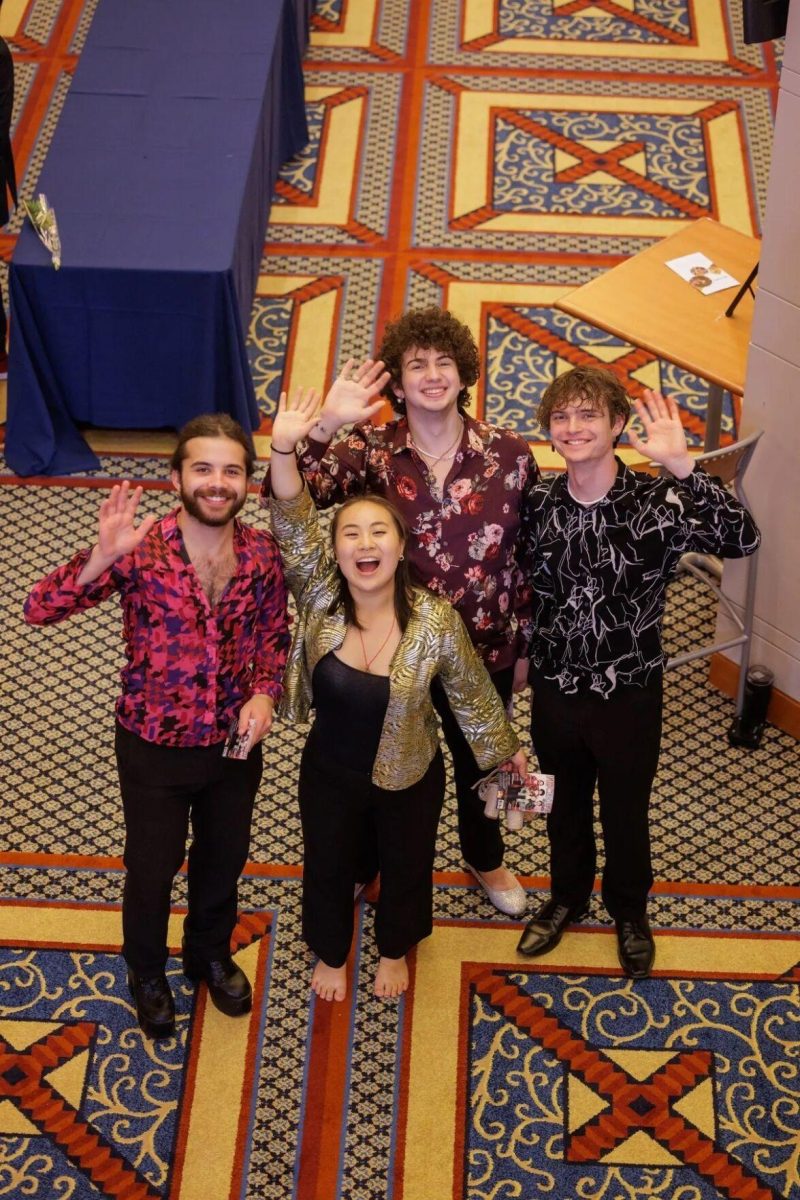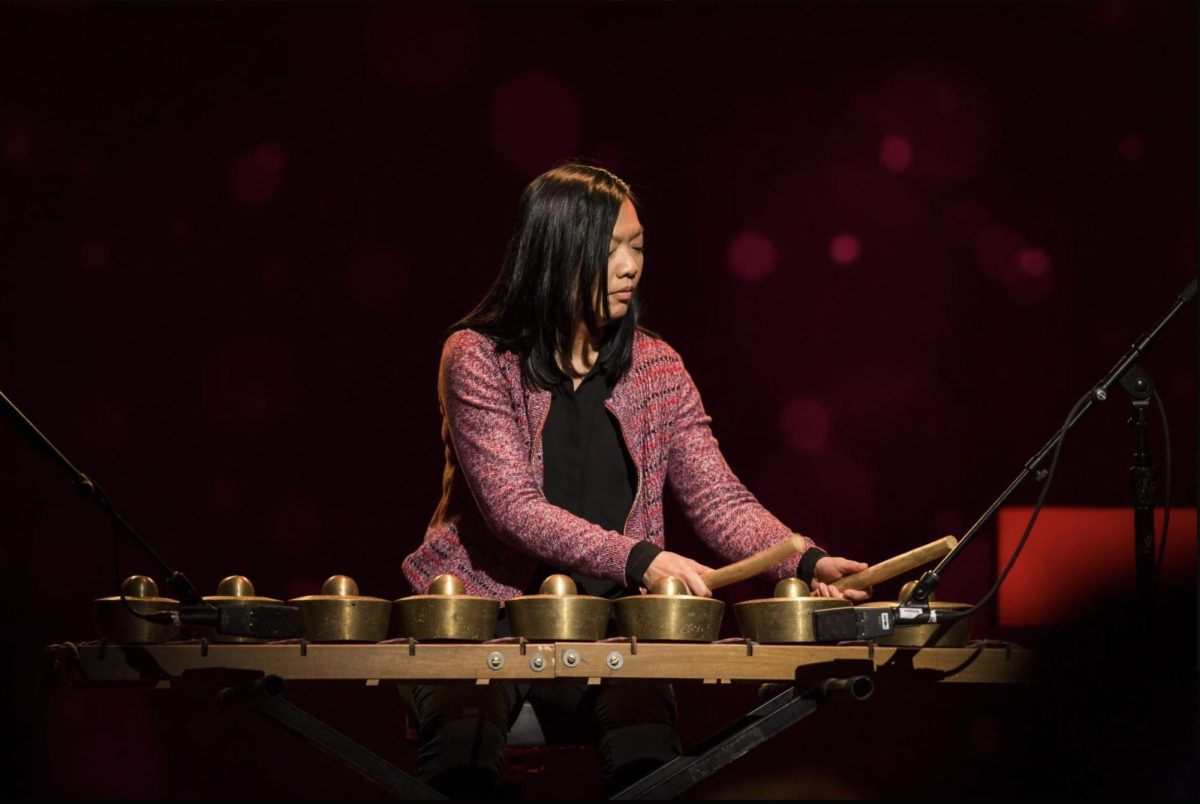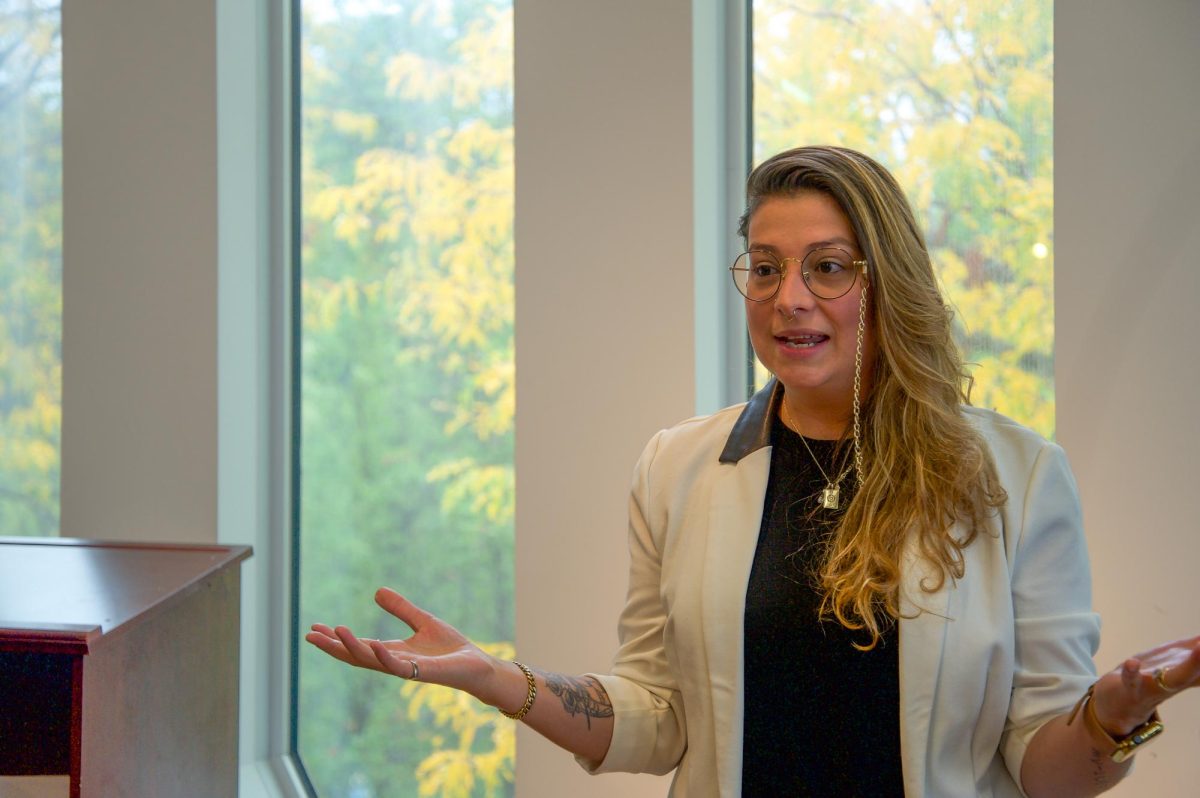Jeff Scott, an associate professor of French Horn at Oberlin Conservatory, performed with the Imani Winds for over 20 years. His composition Passion for Bach and Coltrane, which features the Imani Winds, poetry by A.B. Spellman, the Harlem Quartet, and the jazz trio Alex Brown, Edward Perez, and Neal Smith, recently won a Grammy Award for Best Classical Compendium.
This interview has been edited for length and clarity.
Could you share a little bit about what it was like being recognized by the Grammys?
I’ve been telling everybody this week that you never expect to win. It’s, of course, incredible to be nominated, and I mean it from the bottom of my heart, I would have been fine with just being nominated. You go to the party, they say your name on the big screen, you see Beyoncé. It’s like, all right, I could die now. I’ve experienced the sublime. And then they call your name, and literally, it felt like a shock, like somebody was trying to bring me back to life. The whole thing turned into tears, and I just didn’t know what to do.
Fortunately, Monica Ellis, the bassoon player in the ensemble, has this belief that things will just work out. She had this whole thing written out, what she was going to say, and she was studying it on her phone, trying to memorize, and then she was like, “Jeff, I’m sure, we’re going to win. You want to say this? You should say this stuff, you should go.” I said, “I will turn to mush. No, you do it.” And she knocked it out of the park, man. I mean, they didn’t even give you 40 seconds to say everything. She was just like, boom, boom, with all the excitement and energy and emotion that was going on, she managed to just nail it.
How did Passion for Bach and Coltrane come to be? Did you build your composition around the verses by A.B. Spellman, or was it the other way around?
It was purely inspiration from the poetry. A.B. Spellman is the father of the oboe player in my wind quintet, Toyin Spellman, and he’s always been sort of a father figure to the ensemble. Back in 2012, he had completed a book of poetry called Things I Must Have Known. He gave each one of us in the ensemble a copy of it as a present. I’m not a big reader — I do read, but I usually save it for the summer — so I kind of put the poetry on my shelf, admittedly.
Then, about a year and a half later… I made it my summer reading. I read probably six poems out of it, and I had to stop. I immediately sent him an email, and I said, “Mr. Spellman, I don’t know what we’re going to do, but we have to do something together. This poetry is just screaming a project to me. It reads like blues and jazz.” I could hear the sway in the words. You couldn’t help it, the way he writes it. And he said, “Okay, I don’t hear any music in my poetry, but if you hear it, you know.”
Bach and Coltrane come from very different eras and genres. How did you connect them in your mind and musically?
That was A.B. Spellman. There’s a set of about three or four poems where he’s basically in a hotel room by himself and he’s just sort of contemplating life. He puts music on the radio and hears the Bach Concerto No. 5 in F minor and it’s sublime to him. He feels like he’s being transformed by the musical line beyond what listening to music is like. His soul has been transformed.
Then later in the same evening, he hears music by John Coltrane and he experiences the same thing. He realizes that it’s not necessarily about the musicians, but it’s the music they created that both reached this plateau where you’re not thinking about the notes anymore. You’ve been transformed. Then he says, “I wonder what would have happened or what would happen if they, by chance, would meet in heaven. What would that conversation be like?” I totally was influenced by A.B. Spellman. To be really honest, you should be interviewing him. While he didn’t hear music behind what he wrote, it was so informed by not only a knowledge of music, a knowledge of the history of music, [but] also a knowledge of the history of religion.
Over the past 10 years of performing this piece, have your musical interpretations changed at all?
Oh, yeah. I mean, first of all, it’s so heavily jazz-influenced. We do have a couple of musicians in the ensemble that are real jazz musicians. The clarinet player, Mark Dover, can play the most pure Copland concerto, and then turn around and scream on the clarinet — he’s that guy. The rest of us are fearless. So you get different interpretations, not only from the jazz side, but because we’re being influenced by composers who embraced improvisation. Bach was the original jazz musician, you dig? That’s what he did every Sunday. So even with Bach, especially with the opening where we did the aria plus the variations, there’s so much room for improvisation. When you studied in that era, it was expected that you learn embellishment.
I mean, that was part of what your studies were. We have musicians that embraced that, studied that, and knew how to handle the Bach as well as the Coltrane.


